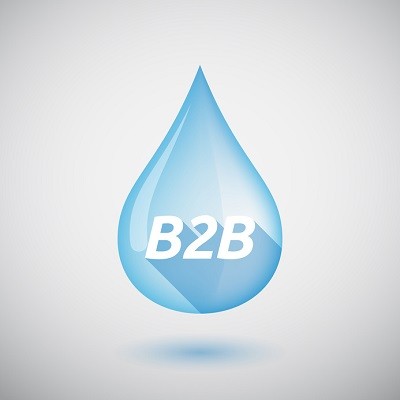Effectively communicating and relaying information to visitors to your website is easier with marketing videos. Communicate your services, company culture, company values and anything else you think is important to your prospective and established customers via video. To the uninformed and unprepared mind, marketing videos may seem like a lot of work, but with some information and planning, your MSP website can start reaping the benefits of adding marketing videos to your website.
JoomConnect Blog
How many businesses in your service area do you think are out there that fit your ideal customer profile, but aren’t yet aware you exist? How many know of you, but aren’t yet aware of what managed services is, and how an outsource IT provider would benefit their business operations?
It might not be the first thing you would think of as a means of getting potential business in the door, but you could certainly do a lot worse than to host an open house as a managed service provider. Let’s go over why you might want to put on this kind of event, as well as a few tips and ideas to help you do so.
Videos are a great way for your MSP company to connect with your potential prospects and customers and increase the time spent on your website. A video is a quick and easy way to market your company, allowing you to introduce your company to the visitors of your website as well as showcase your products and any services that you perform. Let us tell you some reasons why your MSP website should be featuring marketing videos.
Is your MSP website having a problem keeping visitors on your site long enough to convert? Video is a great way to increase engagement, however only if it’s done correctly. Here are some best practices to incorporate video on your website and retain the attention of potential leads.
MSP Marketing is something a majority of companies struggle with. Without the right tools, marketing success is unlikely. Business owners are hammered with the importance of building a brand, brand awareness, brand recognition, brand identity, and many think they can achieve this by simply slapping a logo wherever it is most noticeable. Your brand identity is essentially your DNA, although reflecting it isn't always that simple.
Marketing can be a challenging endeavor for a business in any industry to tackle, but this is especially true when considering how a managed service provider should approach it. Indeed, there are a few challenges that can—and, more pertinently, do—stand in the way of an MSP’s success in its marketing and, by extension, its business operations.
While most might be familiar with the concept of a business’ code of conduct—the rules that their employees have to follow and comply with—fewer are likely aware of the concept of a code of ethics. Let’s go over what this kind of code covers, and how a friendly neighborhood IT team might develop one of their own.
Yes, we’ve mentioned the marketing challenges and hurdles facing MSPs before, and we’re mentioning them again! Marketing can be challenging for any business, in any industry, but it is especially challenging when considering how a managed service provider should approach marketing and the hurdles that stand in the way of its marketing efforts' success.
There are a million and one challenges businesses will have to tackle to market themselves, but things are even more difficult when the business you're trying to market is a managed service provider.
Small businesses are an integral part of the local community’s economy: they hire local people, and pay those people a wage that allows them to make purchases from businesses in the area. They serve the local businesses, and help them function through the products and services that they provide them.
One of the biggest mistakes that many small businesses make is to not attempt to seek out new clients. They hope that an ideal client will stumble across their company in a Google search, or maybe hear about them by speaking to another small business owner in the area. And yes, this definitely does happen. I’m sure that’s how you’ve gotten a lot of your clients.
You can market your company through various print and digital advertising methods and successfully generate sales. But, doing so costs your company money, and it isn’t as persuasive as genuine social proof.
Many small and medium-sized businesses have a mistaken impression of marketing activities. Either they’ll shrug them off as something that only the really big businesses do, and that it’s not really something they need, or they figure that what they’re already doing is enough. The fact that you’re reading this blog says that you aren’t with either group, which also means you understand how important it is to market, and that there’s more you could be doing.
Drip marketing can be a powerful tool to use as a campaign to communicate with your audience. Using these drip campaigns properly will help lead leads, prospects, and recurring clients to complete the actions that eventually bring about a completed transaction. Here, we’ll discuss how drip campaigns work, some common uses for them, and how to plan them out
The marketing term “brand” has very literal roots, as it comes from the long-antiquated practice of branding livestock with a symbol that signified who owned that particular animal. Nowadays, however, “brand” implies much more than just a company’s ownership in its name or logo--it also suggests the personality and culture that a company exhibits and embraces. A brand, by design, is meant to shape how a company will be perceived by the public and is therefore a precious and fragile thing that requires careful maintenance. However, once started, developing a comprehensive brand identity and corresponding activity is fairly simple.
We’ve all been there. You're excited to begin working with a new client, only to find out a little bit down the road that the client's needs don't exactly align with your services. Your team then goes out of the way to help them to the best of your ability and, as much as the client appreciates all your attempts to help, you just can't get past the fundamental differences between their needs and your offering. Ultimately, you end up parting ways with nothing to show for all their hard work. Well, guess what? You can end this problem easily, with good marketing.
Your company’s brand is a critical aspect of any and all of your marketing efforts. No matter what medium you are marketing in, and no matter what point in their journey a potential buyer may happen to be, your brand and message has to be consistent to everything you are producing. After all, your marketing establishes a personality of sorts that your audience will begin to associate with your company.




















